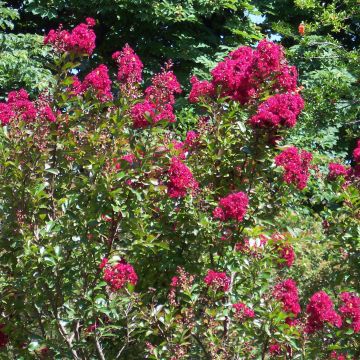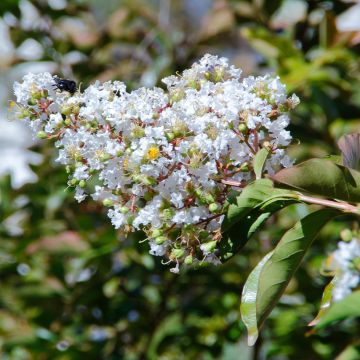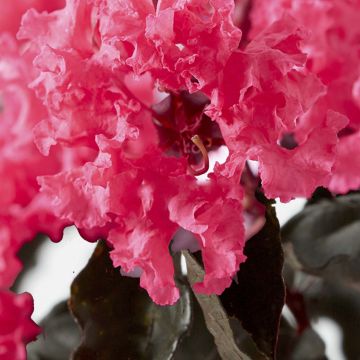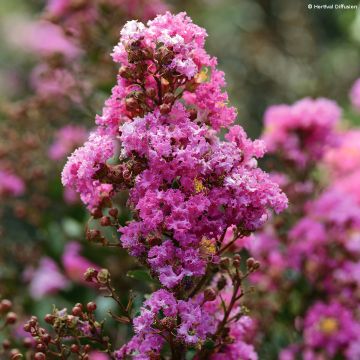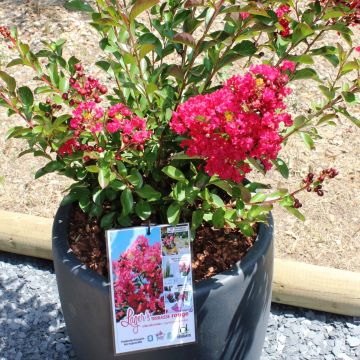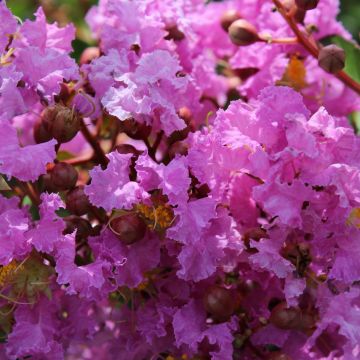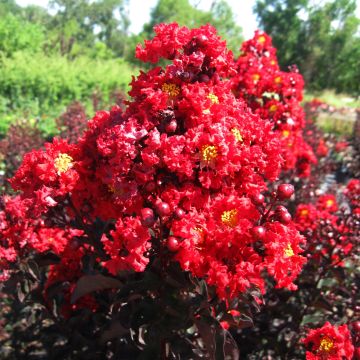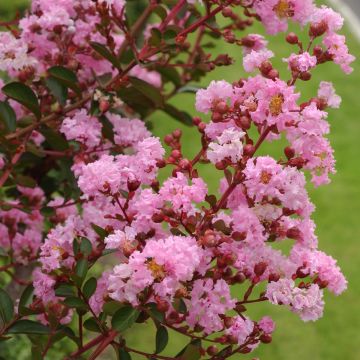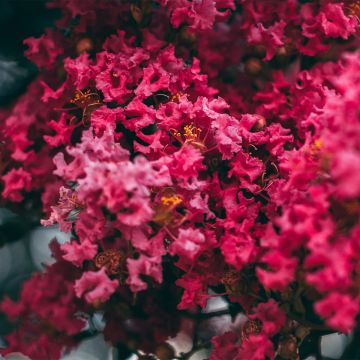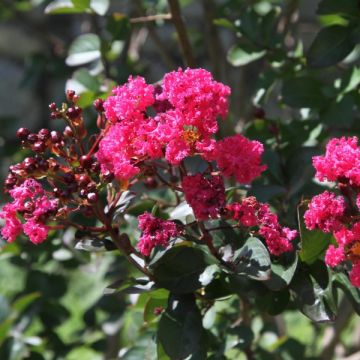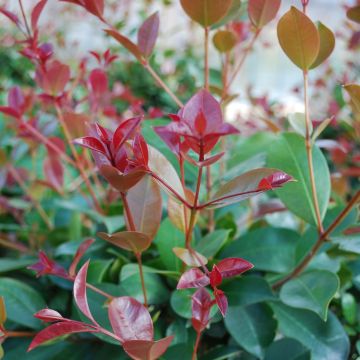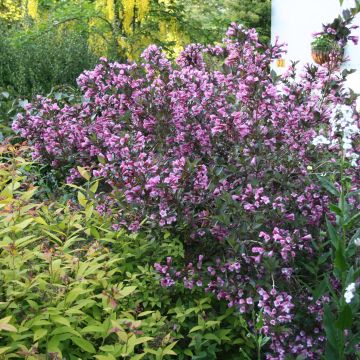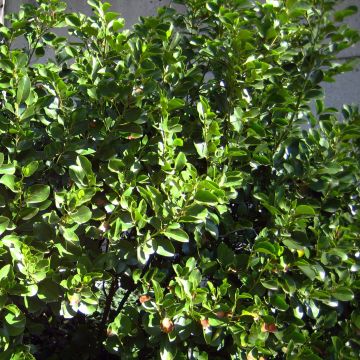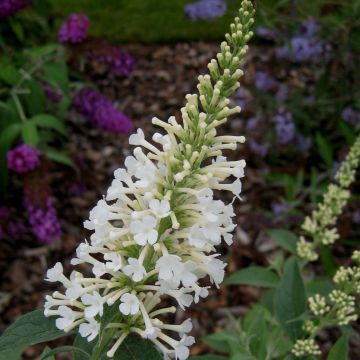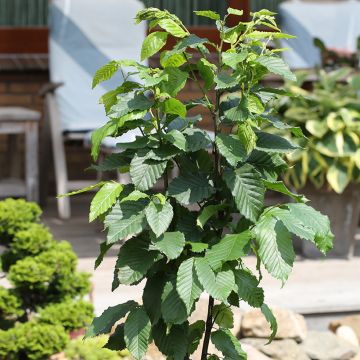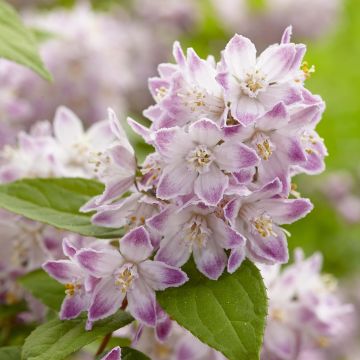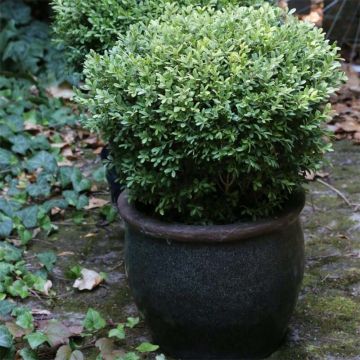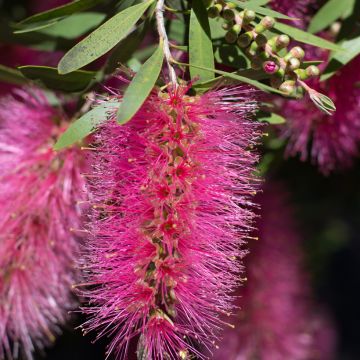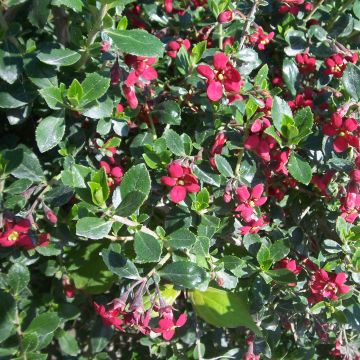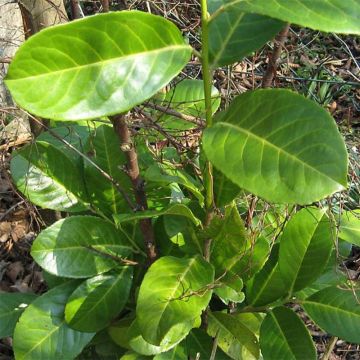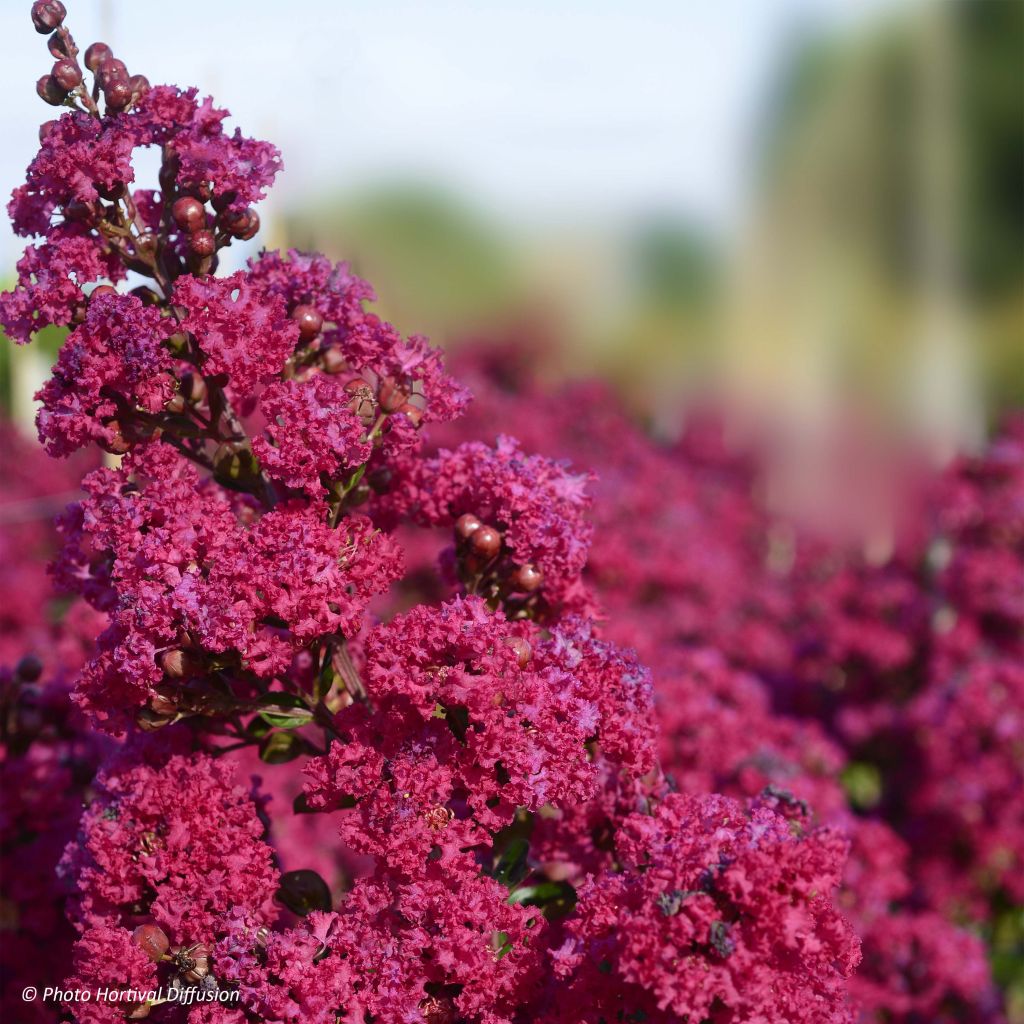

Lagerstroemia indica Braise dEté Indybra - Crape Myrtle
Lagerstroemia indica Braise dEté Indybra - Crape Myrtle
Lagerstroemia indica Braise d'Eté 'Indybra'
Crape Myrtle, Crepe Myrtle, Indian Lilac
This item cannot be shipped to the selected country
Delivery charge from €5.90
Delivery to Corse prohibited
More information
Schedule delivery date,
and select date in basket
This plant carries a 24 months recovery warranty
More information
We guarantee the quality of our plants for a full growing cycle, and will replace at our expense any plant that fails to recover under normal climatic and planting conditions.
From €5.90 for pickup delivery and €6.90 for home delivery
Express home delivery from €8.90.
Delivery to Corse prohibited: UE law prohibits the import of this plant from mainland France to Corse as part of the fight against Xylella fastidiosa. Please accept our sincere apologies.
More information
Does this plant fit my garden?
Set up your Plantfit profile →
Description
Lagerstroemia indica Braise d'Eté 'Indybra' is another variety of Indian Lilac from the INDIYA CHARMS® series, bringing together early flowering bushes that are capable of offering an abundance of flowers. This medium size variety is adorned with large dark green leaves that serve as a backdrop for clusters of striking red-pink foamy clusters, impressive in their intensity. The flowers appear from early July. Indian Lilacs are also appreciated for their smooth, richly coloured bark, which is ornamental all year round, as well as their beautiful autumn colours. These bushes like the heat but appreciate some coolness in summer to support their flowering. This variety will make a sensation when planted alone in a small garden or in a nice pot on a terrace.
Lagerstroemia indica Braise d'Eté 'Indybra' is part of a series of carefully selected hybrids chosen for their unique colours, early flowering, floribundity, compactness, and their lesser sensitivity to Powdery Mildew. This variety by SAPHO is still not widely available in commerce.
Braise d'Eté belongs to the Lythraceae family, just like Lagerstroemia indica from which it originates. The latter is native to China. This shrub has a bushy and ramified habit from the base, with a rounded, slightly spreading crown. Of medium size, it will reach approximately 3.5 m (11.5 ft) in height at maturity, with a diameter of 2.5 m (8.2 ft). Its growth is quite fast. Flowering starts in early July and continues until September. The large inflorescences, in ramified clusters, are composed of numerous small flowers carried by thin pedicels. Each flower has five petals with very undulate edges, with a texture reminiscent of crepe. They are gathered in large, dense panicles at the tips of the branches of the year.
In Braise d'Eté, the pedicels are pinkish. The flower buds are almost red and shiny, then they open widely into flowers of a very bright red-pink. The leathery and deciduous leaves emerge bronze, then become dark green and glossy. They are composed of large ovate leaves, which often take on pretty orange or coppery hues in autumn, depending on the climate. Finally, and to finish in beauty, its bark is truly beautiful: smooth, beige streaked with grey, reddish-brown, and peeling off in coloured patches (cinnamon, muted red, old rose, or cream).
Indian Lilacs traditionally thrive in warmer regions, but these small trees can be acclimatised in colder areas, especially its improved varieties, which are hardier. Enjoy its beauty when planted in isolation near the house. Braise d'Eté will also look good in a shrub bed or in a flowering hedge mixed with different varieties and colours, or emerging from a mound of perennials. Plant it alongside smoke trees and deciduous spindle trees for a wonderful display of autumnal colour. Consider planting in a large pot for a patio, where it will put on a magnificent show. We have imagined a simple plant tapestry as ground cover to highlight this lilac: a weaving of thymes (Thymus hirsutus, T. longicaulis, T. nitens), oreganos, and silver baskets will dress the base of its trunk, accentuate the beauty of its bark, and reflect its beautiful flowering.
NB: Karl Von Linné named this tree to pay tribute to his friend Magnus Von Lagestroem (1696 – 1759), who had sent it to him from India for identification. Originally, this tree was used to decorate Chinese temples. We would like to point out that this tree produces fruits that have a narcotic effect if ingested.
Report an error about the product description
Lagerstroemia indica Braise dEté Indybra - Crape Myrtle in pictures
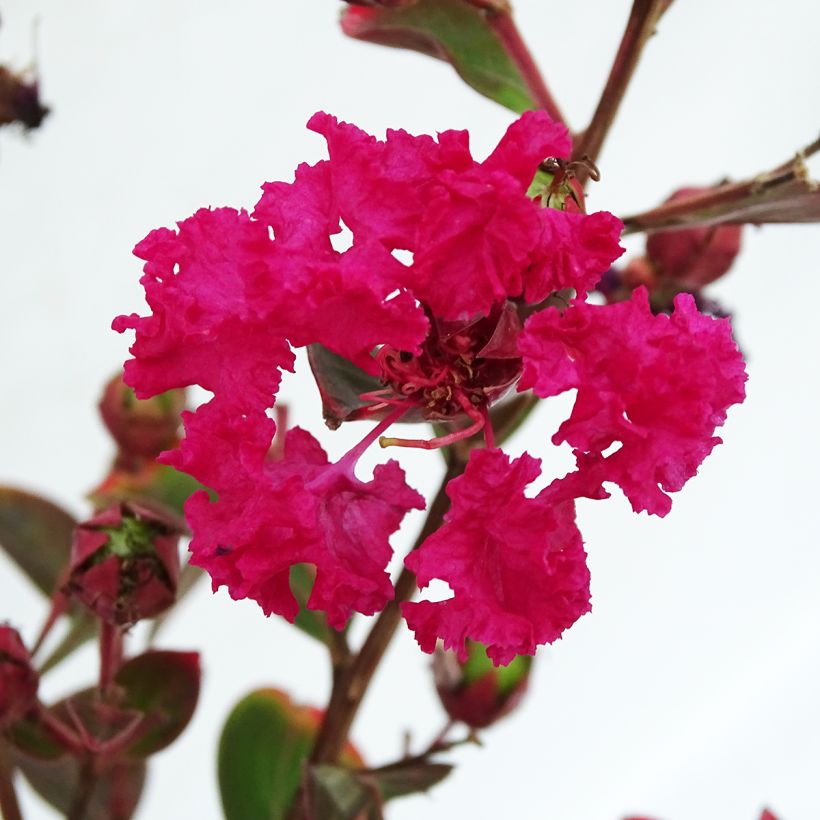

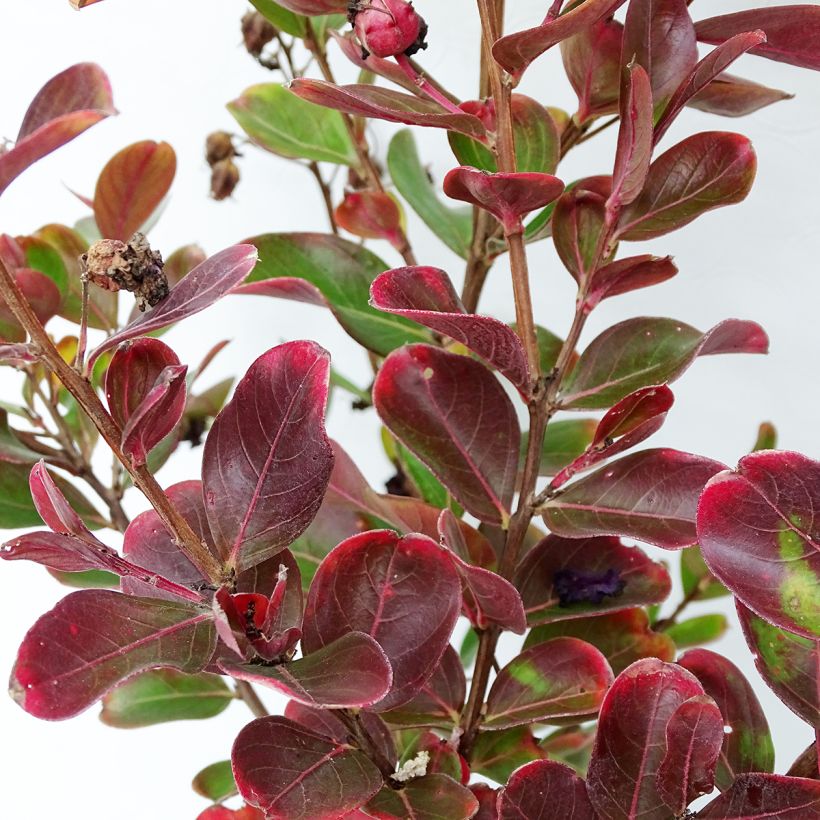

Plant habit
Flowering
Foliage
Botanical data
Lagerstroemia
indica
Braise d'Eté 'Indybra'
Lythraceae
Crape Myrtle, Crepe Myrtle, Indian Lilac
Cultivar or hybrid
Other Lagerstroemia - Crape Myrtle
Planting and care
Plant in spring, when there is no longer any risk of frost, in a very sunny and sheltered location. Choose rich, moist but well-drained soil that is preferably slightly acidic, neutral or not very chalky. It will appreciate the addition of compost and a thick layer of dead leaves, especially during the first two winters in cold regions. Prune the floriferous branches very short in February-March, leaving only 4 to 6 buds to balance its habit and stimulate the growth of future flower-bearing branches. If necessary, remove weak twigs and poorly positioned branches.
Planting period
Intended location
Care
-
, onOrder confirmed
Reply from on Promesse de fleurs
Hedge shrubs
Haven't found what you were looking for?
Hardiness is the lowest winter temperature a plant can endure without suffering serious damage or even dying. However, hardiness is affected by location (a sheltered area, such as a patio), protection (winter cover) and soil type (hardiness is improved by well-drained soil).

Photo Sharing Terms & Conditions
In order to encourage gardeners to interact and share their experiences, Promesse de fleurs offers various media enabling content to be uploaded onto its Site - in particular via the ‘Photo sharing’ module.
The User agrees to refrain from:
- Posting any content that is illegal, prejudicial, insulting, racist, inciteful to hatred, revisionist, contrary to public decency, that infringes on privacy or on the privacy rights of third parties, in particular the publicity rights of persons and goods, intellectual property rights, or the right to privacy.
- Submitting content on behalf of a third party;
- Impersonate the identity of a third party and/or publish any personal information about a third party;
In general, the User undertakes to refrain from any unethical behaviour.
All Content (in particular text, comments, files, images, photos, videos, creative works, etc.), which may be subject to property or intellectual property rights, image or other private rights, shall remain the property of the User, subject to the limited rights granted by the terms of the licence granted by Promesse de fleurs as stated below. Users are at liberty to publish or not to publish such Content on the Site, notably via the ‘Photo Sharing’ facility, and accept that this Content shall be made public and freely accessible, notably on the Internet.
Users further acknowledge, undertake to have ,and guarantee that they hold all necessary rights and permissions to publish such material on the Site, in particular with regard to the legislation in force pertaining to any privacy, property, intellectual property, image, or contractual rights, or rights of any other nature. By publishing such Content on the Site, Users acknowledge accepting full liability as publishers of the Content within the meaning of the law, and grant Promesse de fleurs, free of charge, an inclusive, worldwide licence for the said Content for the entire duration of its publication, including all reproduction, representation, up/downloading, displaying, performing, transmission, and storage rights.
Users also grant permission for their name to be linked to the Content and accept that this link may not always be made available.
By engaging in posting material, Users consent to their Content becoming automatically accessible on the Internet, in particular on other sites and/or blogs and/or web pages of the Promesse de fleurs site, including in particular social pages and the Promesse de fleurs catalogue.
Users may secure the removal of entrusted content free of charge by issuing a simple request via our contact form.
The flowering period indicated on our website applies to countries and regions located in USDA zone 8 (France, the United Kingdom, Ireland, the Netherlands, etc.)
It will vary according to where you live:
- In zones 9 to 10 (Italy, Spain, Greece, etc.), flowering will occur about 2 to 4 weeks earlier.
- In zones 6 to 7 (Germany, Poland, Slovenia, and lower mountainous regions), flowering will be delayed by 2 to 3 weeks.
- In zone 5 (Central Europe, Scandinavia), blooming will be delayed by 3 to 5 weeks.
In temperate climates, pruning of spring-flowering shrubs (forsythia, spireas, etc.) should be done just after flowering.
Pruning of summer-flowering shrubs (Indian Lilac, Perovskia, etc.) can be done in winter or spring.
In cold regions as well as with frost-sensitive plants, avoid pruning too early when severe frosts may still occur.
The planting period indicated on our website applies to countries and regions located in USDA zone 8 (France, United Kingdom, Ireland, Netherlands).
It will vary according to where you live:
- In Mediterranean zones (Marseille, Madrid, Milan, etc.), autumn and winter are the best planting periods.
- In continental zones (Strasbourg, Munich, Vienna, etc.), delay planting by 2 to 3 weeks in spring and bring it forward by 2 to 4 weeks in autumn.
- In mountainous regions (the Alps, Pyrenees, Carpathians, etc.), it is best to plant in late spring (May-June) or late summer (August-September).
The harvesting period indicated on our website applies to countries and regions in USDA zone 8 (France, England, Ireland, the Netherlands).
In colder areas (Scandinavia, Poland, Austria...) fruit and vegetable harvests are likely to be delayed by 3-4 weeks.
In warmer areas (Italy, Spain, Greece, etc.), harvesting will probably take place earlier, depending on weather conditions.
The sowing periods indicated on our website apply to countries and regions within USDA Zone 8 (France, UK, Ireland, Netherlands).
In colder areas (Scandinavia, Poland, Austria...), delay any outdoor sowing by 3-4 weeks, or sow under glass.
In warmer climes (Italy, Spain, Greece, etc.), bring outdoor sowing forward by a few weeks.

































